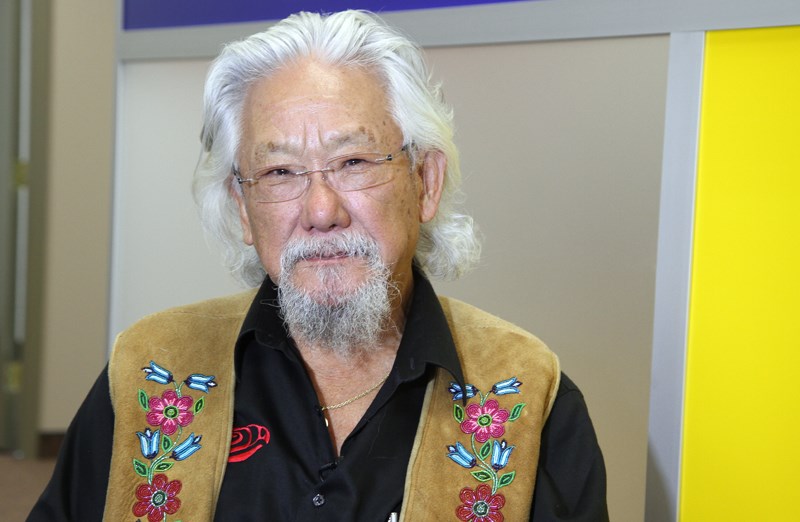THUNDER BAY -- More than 20 years after the Ontario Environmental Bill of Rights was introduced, concerns are mounting the legislation has remained largely unchanged.
Proponents of the bill say while the law has remained stagnant, pressures on Ontario’s environment continues to increase.
The Blue Dot movement presented a town hall discussion with celebrity environmental activist David Suzuki and guests on Friday evening. The discussions' focus was on the future of environmental rights in the province.
“A lot has happened in the last 20 some years,” Suzuki said.
“We are much more aware of the things that are happening, of course we knew about climate change way back in the 1980s and everyone understood that it was serious, but we haven’t done anything.”
Suzuki argues part of the problem is the fossil fuel industry has spent astonishing sums of money to promote its stance that global warming is a natural occurence.
This assumption has caused the environment to become worse than when the Environmental Bill of Rights was enacted in 1993.
“I think it’s now time to change it, and what we have to do is basically elevate the air, the water, and the soil,” he said.
“The things that keep us alive and healthy have got to be elevated as the highest priority that governments are elected to protect.”
If the Ontario government is committed to protecting the environment for human beings this will mean clean air, clean water, clean soil and protecting other species.
Suzuki said these are all a part of what it is to have a healthy environment, but a healthy environment has yet to be elevated as the highest priority.
“Without air we die,” Suzuki said. “Don’t tell me we have to compromise or balance that with the economy. The air keeps us alive, you can’t eat money so what’s going on why do we always have to balance the environment"
Suzuki added the environment is the source of our health and wellbeing, so how do we adapt the economy, the industry and the market to that reality.
If a healthy environment is at the top of the agenda then it is up to the companies to prove to the citizens they are not harming in anyway the clean air, clean water, and clean soil, so it puts the burden of proof on the industry not on the victims.
The important thing is the overall riding priority that the government should have that our health is the highest priority, because our health depends on clean air, clean water, and clean soil.
“I personally believe that the vast majority of health problems we have are related to the fact that we’ve used air, water, and soil as a garbage can for toxic chemicals,” Suzuki said.
“We are full of dozens of chemicals that are toxic -- whatever we put into our air, water and soil, guess what, it’s going to come directly into us.”
Suzuki added people must adapt themselves to the new world coming in.
“We are going to have to clean up the problems we’ve created, and this isn’t a matter of local issues, this isn’t just a matter of how much it’s going to cost,” he said.
“When you look at the possibilities of climate change there are a lot of scientists now that are saying we won’t be here by the end of this century.”
Suzuki added once the community has committed to the idea of a healthy environment, the greatest threat will be climate change.
"If people are committed and worried about the environment they will know in order to protect it they will have to do everything they can to change energy resources."
